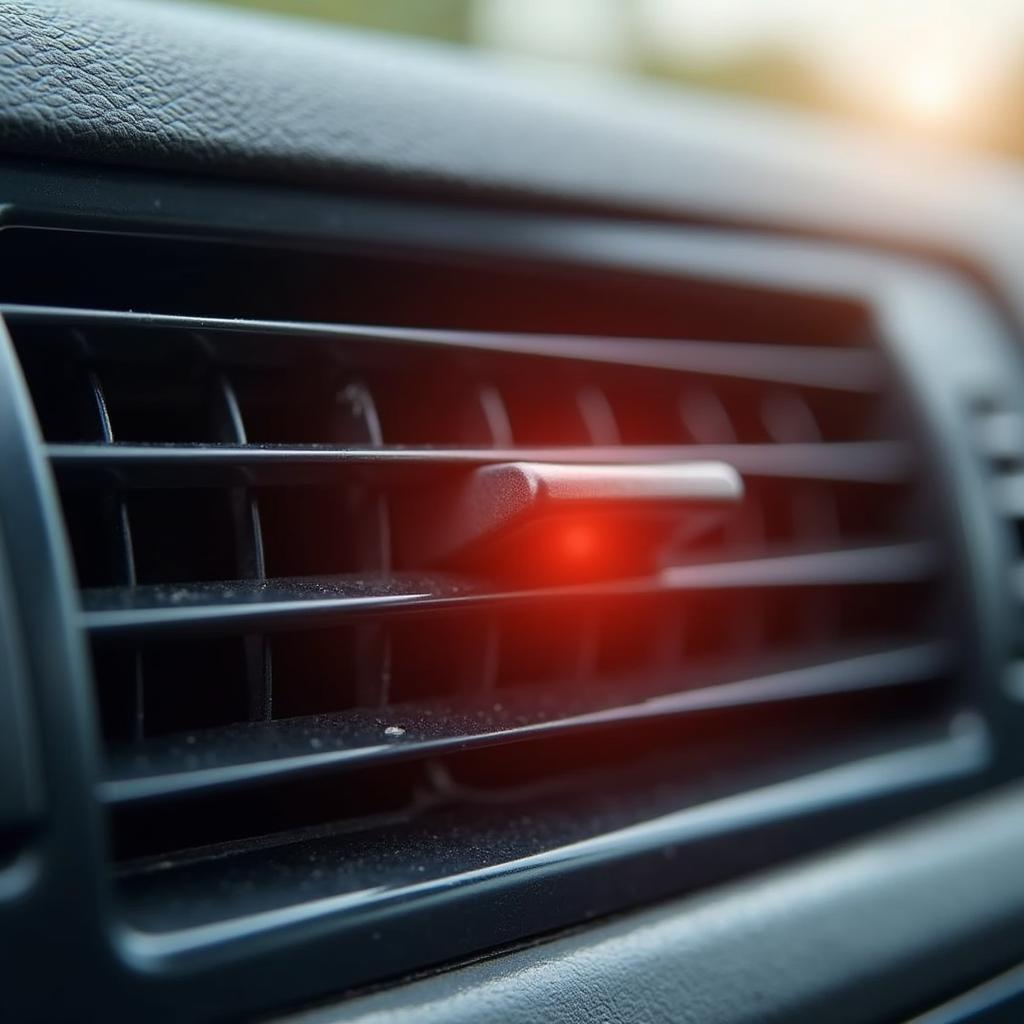Knowing how to check if your car AC needs service is crucial for maintaining a comfortable driving experience, especially during hotter months. A malfunctioning AC system can be more than just an inconvenience; it can indicate underlying issues that, if left unattended, could lead to costly repairs down the road. This guide will provide you with a comprehensive checklist to help you determine whether your car’s AC system requires professional attention. Let’s dive in and learn how to keep your cool on the road. Is car air conditioning service necessary? Find out here.
Signs Your Car AC Needs a Service
Several tell-tale signs indicate your car’s AC system isn’t functioning optimally and might require a service. Recognizing these early symptoms can save you time, money, and potential discomfort.
- Weak Airflow: If the air coming from your vents feels less forceful than usual, even at the highest fan setting, it could point to a clogged cabin air filter, a failing blower motor, or a refrigerant leak.
- Warm Air: This is perhaps the most obvious sign. If your AC is blowing warm air instead of cold, it likely indicates low refrigerant levels, a malfunctioning compressor, or issues with the system’s electrical components.
- Unusual Noises: Strange sounds like hissing, clicking, or grinding emanating from the AC system can signify problems with the compressor, expansion valve, or other internal components.
- Unpleasant Odors: A musty or mildew-like smell coming from the vents often indicates mold or bacteria growth within the AC system, usually due to moisture buildup. This not only creates an unpleasant driving experience but can also pose health concerns.
- Leaks: Check for any signs of leaks under your car, particularly after the AC has been running. A clear, oily puddle could indicate a refrigerant leak.
Diagnosing the Problem: A Step-by-Step Guide
While professional diagnosis is always recommended, you can perform some basic checks yourself to gain a better understanding of the potential issue.
- Check the Cabin Air Filter: A dirty cabin air filter restricts airflow and can even contribute to unpleasant odors. Locate the filter (usually behind the glove compartment or under the hood) and inspect it. If it’s dirty or clogged, replace it. How check and service old car? More details here.
- Inspect the Refrigerant Lines: Carefully examine the refrigerant lines under the hood for any signs of damage, kinks, or leaks. Remember, refrigerant is hazardous, so avoid direct contact.
- Listen for Unusual Noises: Turn on your AC and listen for any hissing, clicking, or grinding sounds. These noises can help pinpoint the source of the problem.
- Feel the Airflow: Turn the AC to its highest setting and feel the air coming from the vents. Weak airflow could suggest a problem with the blower motor or a blockage.
When to Seek Professional Help
While some AC issues can be resolved with simple DIY fixes, others require the expertise of a qualified technician. If you encounter any of the following, it’s best to seek professional help:
- Suspected Refrigerant Leak: Refrigerant leaks not only compromise your AC’s performance but also pose environmental risks. A certified technician can identify and repair leaks safely.
- Compressor Issues: The compressor is the heart of the AC system. Diagnosing and repairing compressor problems requires specialized tools and knowledge. Will my car run better after a service? Learn more.
- Electrical Problems: Electrical issues within the AC system can be complex and potentially dangerous to troubleshoot without proper training.
- Persistent Issues: If you’ve tried basic troubleshooting steps and the problem persists, it’s time to consult a professional.
“Regular AC maintenance is key to preventing major issues,” advises John Smith, Senior Automotive Technician at Advanced Auto Solutions. “A simple annual check-up can identify potential problems early on and save you from costly repairs down the line.”
Conclusion
Knowing how to check if your car AC needs service empowers you to maintain a comfortable and efficient driving experience. By recognizing the signs of a malfunctioning AC system and taking appropriate action, you can prevent minor issues from escalating into major problems. Regular maintenance and timely professional intervention are crucial for ensuring your car’s AC system remains in optimal condition. What about the service of chevrolet cars in india? Explore here.
FAQs
- How often should I service my car AC?
- What are the common causes of car AC problems?
- How much does a car AC service typically cost?
- Can I recharge my car AC refrigerant myself?
- How can I improve my car AC’s efficiency?
- What are the signs of a refrigerant leak?
- How can I prevent mold growth in my car AC system?
“Addressing AC issues promptly not only ensures your comfort but also preserves the overall health of your vehicle,” adds Jane Doe, Lead Mechanic at Expert Auto Repair. “Don’t ignore those warning signs – a little preventative maintenance can go a long way.”
Need help with your car’s AC? Explore what are the engine service for new car. For further assistance, check out our article on how check and service old car.
Need more help? Explore our resource on is car air conditioning service necessary.
For immediate assistance, contact us via WhatsApp: +1(641)206-8880 or Email: [email protected]. Our customer service team is available 24/7.


